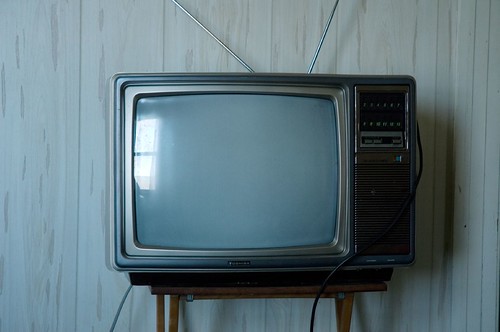 There might be a slight sense of diminishing returns from here on, as most of the remaining units didn't involve much screenwriting and fitted in around Unit Eight - the Major MA Project.
There might be a slight sense of diminishing returns from here on, as most of the remaining units didn't involve much screenwriting and fitted in around Unit Eight - the Major MA Project.While we were still having interesting screenings, lectures and seminars with industry bods at the residentials, most of the rapid learning about screenwriting was linked to the earlier script assignments.
I'd actually been vaguely looking forward to Unit Six - Analysing the TV Drama Episode. Having 'studied' television informally for years, I thought it would be useful to reinforce my half-baked notions with a more established critical vocabulary. However, the 5,000-word essay was a real chore and has done little or nothing to inform my writing since.
It soon became apparent that most of the academic works we were directed towards came from a media studies/sociology perspective rather than offering anything on storytelling or narrative in the medium: the usual wank about semiotics, post-structuralism, Barthes, Baudrillard etc.
Most of the authors also couldn't be bothered to hide their utter contempt for television, largely dismissing viewers as a lumpen passive mass and applying the same criteria to news and adverts as award-winning drama series.
Anyway, my faith in TV gave me a way in. Inspired by the analysis of The Sopranos in Steven Johnson's Everything Bad is Good for You, I argued that the most successful series are those that force their audience to lean forward, engage and become 'active viewers'.
Looking at Life on Mars more specifically, I focused on the various debates the series inspired about the interpretation of the narrative, and how fans use the show as a basis for their own creative activity, through fan fiction, video mash-ups etc.
I'm afraid I've mislaid the reading list for this one as well, but it was fairly standard in terms of standard texts on 'television studies'. Anyway, here are some of the titles I found useful in my analysis of Life on Mars.
- Abercrombie, N. Television and Society (Polity Press)
- Burton, G. Talking Television (Arnold)
- Fiske, J. Television Culture (Routledge)
- Jenkins, H. Textual Poachers: Television Fans and Participatory Culture (Routledge)
- Seiter, E (Ed). Remote Control: Television, Audiences and Cultural Power (Routledge)
Anyway, with the help of tutorial support from Jan Johnson-Smith, I managed to land another distinction-level mark (though the weighting of the course meant this didn't count for much). If, God help us, anyone would like to read my essay, drop me a line.
(Previous units)


No comments:
Post a Comment